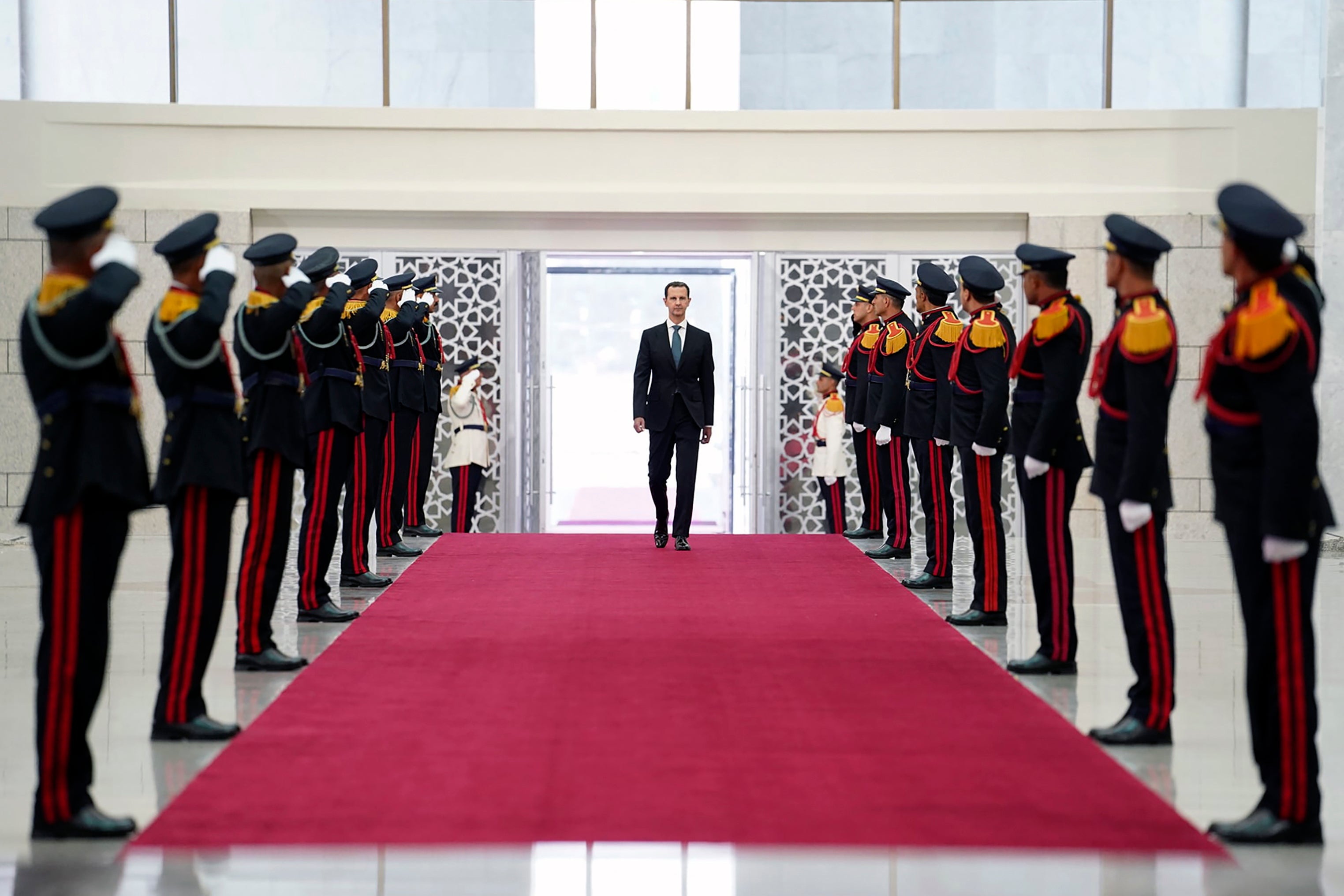Syrian president sworn in for 4th term in war-torn country
Syrian President Bashar Assad has been sworn in for a fourth seven-year term in the war-torn country

Your support helps us to tell the story
From reproductive rights to climate change to Big Tech, The Independent is on the ground when the story is developing. Whether it's investigating the financials of Elon Musk's pro-Trump PAC or producing our latest documentary, 'The A Word', which shines a light on the American women fighting for reproductive rights, we know how important it is to parse out the facts from the messaging.
At such a critical moment in US history, we need reporters on the ground. Your donation allows us to keep sending journalists to speak to both sides of the story.
The Independent is trusted by Americans across the entire political spectrum. And unlike many other quality news outlets, we choose not to lock Americans out of our reporting and analysis with paywalls. We believe quality journalism should be available to everyone, paid for by those who can afford it.
Your support makes all the difference.Syrian President Bashar Assad was sworn in Saturday for a fourth seven-year term in the war-torn country.
The May elections were described by the West and Assad's opposition as illegitimate and a sham.
The swearing-in ceremony was held at the presidential palace and attended by clergymen, members of parliament, political figures and army officers.
In power since 2000, Assad’s re-election in a landslide was never in doubt. His new term starts with the country still devastated by 10 years of war and sliding deeper into a worsening economic crisis.
The U.N. estimates that more than 80% of Syrians live under the poverty line. The Syrian currency is in a free fall and basic services and resources have become scarce or are offered at exorbitant parallel market prices. Fighting has largely subsided, but parts of Syria remain out of government-control and foreign troops and militias are deployed in different parts of the country.
Nearly half of Syria’s pre-war population is either displaced or living in neighboring countries or Europe as refugees. The war has left nearly half a million killed, tens of thousands missing and devastated the infrastructure.
The conflict that began in 2011 started after the government cracked down on peaceful protests, turning the opposition against the decades-long rule of the Assad family into an armed rebellion.
Assad, targeted by widening sanctions and isolated by the West, is supported by Iran and Russia who sent in troops and assistance that have propped him up throughout the war.
European and U.S. governments blame Assad and his aides for most of the war’s atrocities. Assad calls his armed opposition terrorists while U.N.-led talks to end the conflict have lacked any progress.
Assad took over in 2000 after the death of his father Hafez, who seized power in 1970 in a bloodless military coup.
U.S. and European officials have questioned the legitimacy of the election, saying it violated U.N. resolutions in place to resolve the conflict, lacks any international monitoring and is unrepresentative of all Syrians.
Assad garnered 95.1% of the vote in the election, in which officials said turnout was 78.6% of some 18 million registered voters. There were no independent monitors of the one-day vote. Competition was symbolic, with two candidates running against Assad.
Despite a cease-fire deal in place since last year, a war monitor and rescue workers reported government shelling of a village in the last rebel held enclave in northwestern Syria that killed at least four, including two girls and their grandmother. The White Helmets, the civil defense in opposition areas, said two volunteers were wounded in the shelling in southern Idlib province.
The Syrian Observatory for Human Rights, a war monitor with activists on the ground, put the death toll from the shelling of the village of Serjeh at five, including three children and a woman.
Violence has been rising in recent weeks in the enclave as government troops edge toward restoring control of the territory, home to nearly 4 million people.
The truce was negotiated in 2020 between Turkey which supports Syria’s opposition and has troops deployed in the area, and Russia, the Syrian government’s main backer. At the time, it halted a crushing Russian-backed government air and ground campaign aimed at retaking the region.
UNICEF said 512 children were verified killed in fighting in Syria last year, the majority in the northwest where there are 1.7 million vulnerable children, many of whom have fled violence several times.